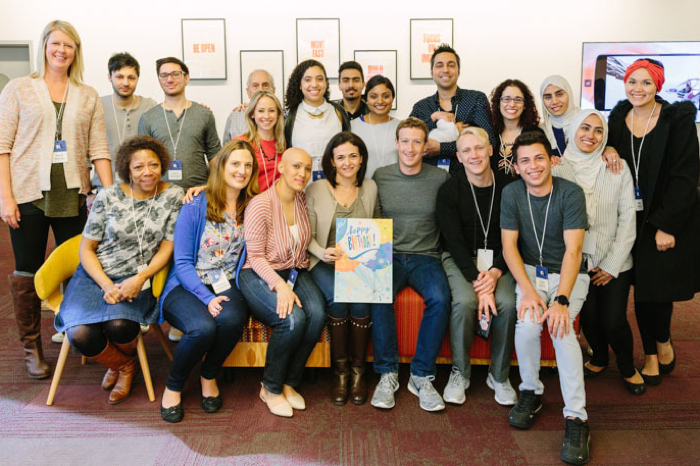
For a company that touts diversity as a “core part” of its public policy advocacy, its newest stats show Facebook has done little to stand out among its Silicon Valley counterparts.
In terms of the ethnicity of its U.S. workforce, just 4 percent are Hispanic, and 2 percent are black. Asians are better represented, making up 38 percent of the social networks employee base (an annual increase of 2 percent). When it comes to tech roles, the news is even worse: Hispanics constitute 3 percent, and blacks a mere 1 percent.
Overall, the numbers remain flat, showing absolutely no signs of progress in regards to these minorities.
Facebook’s global director of diversity Maxine Williams states in her blog post announcing the results that “the company still has a long way to go.” She adds, “of new senior leadership hires at Facebook in the U.S. over the last 12 months, 9 percent are black, 5 percent are Hispanic and 29 percent are women.”
Staying on the topic of female representation, there has been an upturn of women in senior leadership roles, which now stands at 27 percent overall, compared to 23 percent a year ago. Nonetheless, women continue to be underrepresented in tech roles at the firm, with just 17 percent in these specific positions.
As mentioned at the outset, Facebook also took this opportunity to announce its LGBTQ data, which it compiled using a voluntary survey of its employees to which 61 percent responded. The results show that 7 percent of Facebook’s workforce self-identify as being lesbian, gay, bisexual, queer, transgender, or asexual. “We are proud to support the LGBTQ community through our policies, products and extensive benefits for our employees,” states the social network.
According to Williams, there is a skills gap in the U.S. when it comes to tech that can only be repaired when “more people [have] the opportunity to gain necessary skills through the public education system.” Williams states that only 1 in 4 U.S. high schools teach computer science.
For its part, Facebook is pledging to commit $15 million to Code.org (a nonprofit dedicated to expanding access to computer science, and increasing participation by women and underrepresented students of color) over the next five years.
Additionally, the company claims that in the medium to long term it will continue to grow its tech education initiatives. These include the Facebook University (FBU) training program aimed at undergrads from underrepresented groups, and its Lean In Circles venture, which aims to support female college students with an interest in computer science.
Editors' Recommendations
- Reels are about to show up in yet another Facebook feature
- Facebook’s massive outage saw millions sign up for rival apps
- Zoom is coming to Facebook Portal, Amazon Echo Show, and Google Nest Hub Max
- Zuckerberg wrote Facebook can ‘just buy any competitive startups’
- How to watch the CEOs of Facebook, Google, Amazon, and Apple testify to Congress


